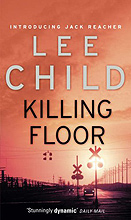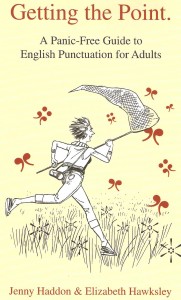Jack Reacher, Closet Nerd?
I have a confession to make. I can’t take most currently popular crime novels. It’s a genre I’ve always loved and it makes me sad.
Crime novels, says PD James, are about the restoration of the social order. They are about justice. Now I have a passion for justice and an appetite for murder in a story. I relish following a character over the tipping point where the functioning social being goes out into the dark alone to kill. But, but, but …. I can’t be doing with voluptuous nastiness, even when it’s very well written. Maybe especially when it’s very well written.
Take an example. I read the Millenium Trilogy in one bound, as it were. Was fascinated by the characters and the ideas but the violence was such that I really had to brace myself to read the second in the series. I’m glad I carried on through book 2 and then finished The Girl Who Kicked the Hornet’s Nest. But I’m pretty sure I couldn’t take it again. Nastiness like that gets into my dreams.
Maybe I’ve overdosed. And not just on Stig Larsson.
Which is why I have always puzzled over my willingness to pick up another Jack Reacher novel. Some (though not all) of Lee Child’s murderers are sadists. There is a high body count. Violence is not shirked. Reacher, of course, is a hero– a career soldier who retires and declutters his life of everything, house, books, relationships, laundry. (Possibly a touch of wish fulfilment for me there, I thought.) He solves problems beautifully. Restores justice. Moves on. A hero, certainly. But my hero? Why?
And then I read Killing Floor and realised wherein lies his attraction. He is my soul mate. He believes in apostrophes. Hell, he deduces clues from apostrophes.
Reacher and a fellow investigator are looking for what Hitchcock called the McGuffin. They have found a list but so far have drawn a blank. Then Reacher has an idea.
‘You recall the second to last item?’ I asked him.
‘Stollers’ garage,’ he said.
‘Right, ‘ I said. ‘But think about the punctuation. If the apostrophe was before the final letter, it would mean the garage belonging to one person called Stoller. The singular possessive they call it in school, right?’
‘But?’ he said.
‘It wasn’t written like that,’ I said. ‘The apostrophe came after the final letter. It meant the garage belonging to the Stollers. The plural possessive. The garage belonging to two people called Stoller. And there weren’t two people called Stoller living at the house out by the golf course.’
Soul mates, I told you.


Fab, Jenny. An educated, thinking hero.
With an attitude to laundry that I utterly relate to.
Oh, the power of the apostrophe — I love it. I have to confess I’ve never read any Jack Reacher books. It might be time to remedy that. Thanks, Jenny.
Hope you enjoy it, if you do, Anne.
Pretty nearly each one is a masterclass in page-turning story-telling. At least, I think so. And Lee Child is very good at the critical minute, too- I can still hear/see/taste some of them, even though I’m not always sure which plot they go with, I admit.
I read the first two Jack Reachers, and then life got complicated or did something weird and Jack Reacher fell off the edge of my universe. I can see I need to go drag him back up on the flat spot and pick up where I left off! I’m pretty fond of whoever painted the sign for Stollers’ Garage, too. It wouldn’t have been 98 percent of the people who went to American schools.
It’s not a painted sign, Anne. It’s a handwritten list, as far as I can remember and Reacher does make the point that the person who wrote it was of a generation which cared about punctuation.
Reacher doesn’t say why he cares about punctuation, though. I put it down to having a French mother and travelling a lot, as an army brat, not because he’s of pensionable age!
I adore the Jack Reacher novels, and agree about the laundry [why wash it when you can replace?]. I am now wondering if I can bear the films, if my attraction will survive – when he is to be played by Tom Cruise…
I like Tom Cruise in a lot of things but agree that he isn’t Reacher material, Caroline.